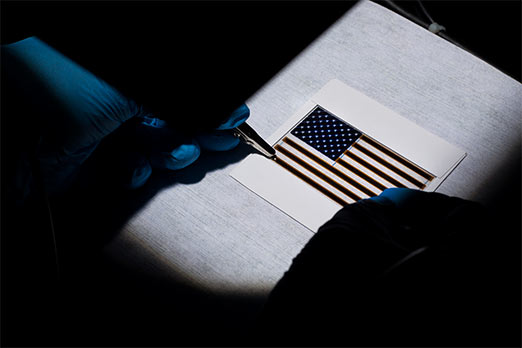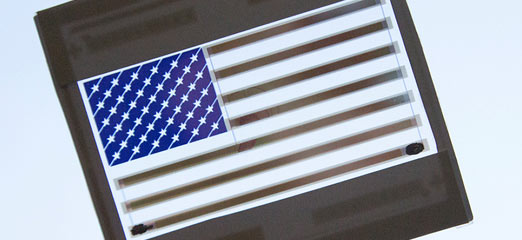Engineers and scientists from the University of Michigan have developed a world first — coloured, semi-transparent photovoltaic solar cells.
New applications
Solar cells are usually dark blue or black, as this allows them to absorb the maximum amount of light. So why make solar cells that are partially transparent?
The idea is that decorative solar panels could be used in a vast number of places, such as windows, window shades, walls and billboards, rather than just being restricted to rooftops.
Professor Jay Guo from the University of Michigan specialises in electrical engineering and computer science, mechanical engineering, and macromolecular science and engineering, and is lead author of a paper about the new solar cells.
“I think this offers a very different way of utilizing solar technology rather than concentrating it in a small area,” he said. “Today, solar panels are black and the only place you can put them on a building is the rooftop. And the rooftop of a typical high-rise is so tiny.
“We think we can make solar panels more beautiful—any color a designer wants. And we can vastly deploy these panels, even indoors.”
Form vs. function

Image credit: Joseph Xu, Michigan Engineering Communications & Marketing
The American Flag design shown above absorbs light through the red and blue sections, and has an efficiency of roughly 2%. The put that into perspective, a 1 meter square panel could generate about enough electricity to power a light bulb or small electronic gadget. Standard PV solar panels have an efficiency of around 20%.
There is naturally be a trade-off between aesthetics and functionality — dense, dark-coloured patterns would absorb more light but may not look as decorative as brighter colours. The team are working on improving materials and efficiency.
Thanks to University of Michigan


One Reply to “University creates semi-transparent, colourful solar cells”
Comments are closed.